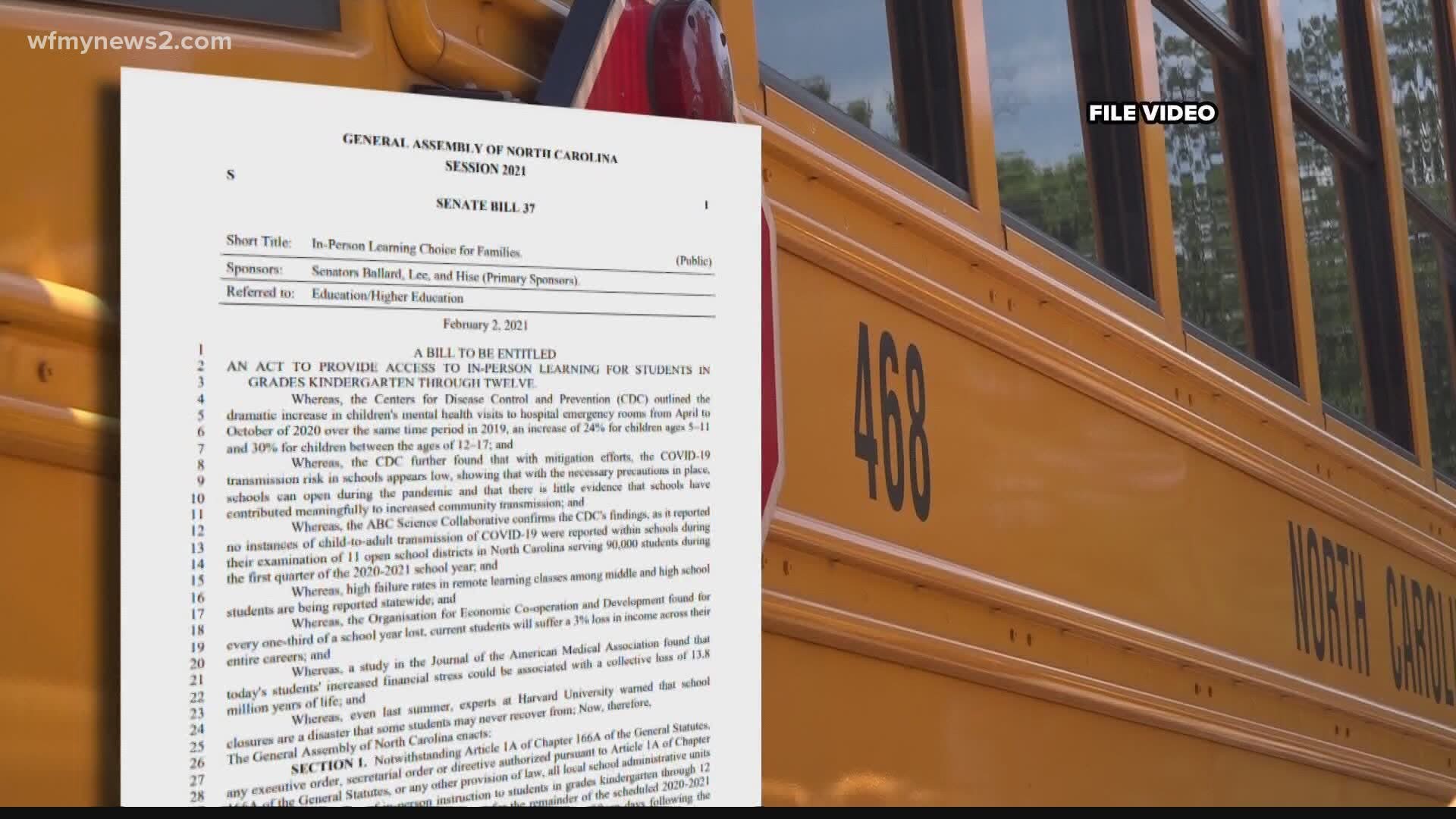NORTH CAROLINA, USA — A bill that would require school districts to provide in-person learning options for students K-12 will now make its way to the North Carolina House of Representatives after passing the Senate Tuesday afternoon.
The bill titled 'In-Person Learning Choice for Families,' passed in a 29-15 vote.
The bill gives local school districts the choice between providing in-person learning under either Plan A, Plan B, or a combination of both. All families are still able to opt for remote learning if they so choose.
As House of Representatives members prepare for the bill to come to the House, some are voicing concerns about it.
"The governor has called on districts to open up the schools but he's left the flexibility up to the local administration and I think the problem with the bill is it preempts the discretionary authority that the local administrators have," said Rep. Pricey Harrison.
House Representative and Majority Whip Jon Hardister said he thinks the bill is a necessary step.
"I appreciate the governor making a statement that it's time for schools to reopen but it's not binding," said Hardister, "Schools can still make their own decisions. School districts can decide whether or not they want to reopen and I think that’s problematic. We’re at the point now where it's been almost a year since schools closed."
The bill also gives local boards of education the ability to make day-to-day decisions on shifting to remote learning if COVID-19 exposures come up, but if a shift is made, they'll be required to notify the Department of Public Instruction within 72 hours.
The bill is on the calendar for the House of Representatives Wednesday.
Harrison said there are teachers still concerned about getting vaccinated before getting back to the classroom. Governor Roy Cooper said during a news conference Tuesday afternoon more will likely be coming on when the state will move into the next phase of vaccinations later this week.
"This week we're going to come forward with specific dates on when essential workers will be able to start getting vaccines. We know people have been concerned about that," said Cooper.
Cooper said right now thousands of people 65 and older are still on waiting lists to get the vaccine.
"We know that 83 percent of the deaths come from people 65 and older so it's important to make sure we work these vaccines and get that to them as quickly as we can," he said, "But we also know our frontline essential workers are important."
The bill will go to the House of Representatives and is expected to be heard in committee tomorrow and with a vote to come this week.

